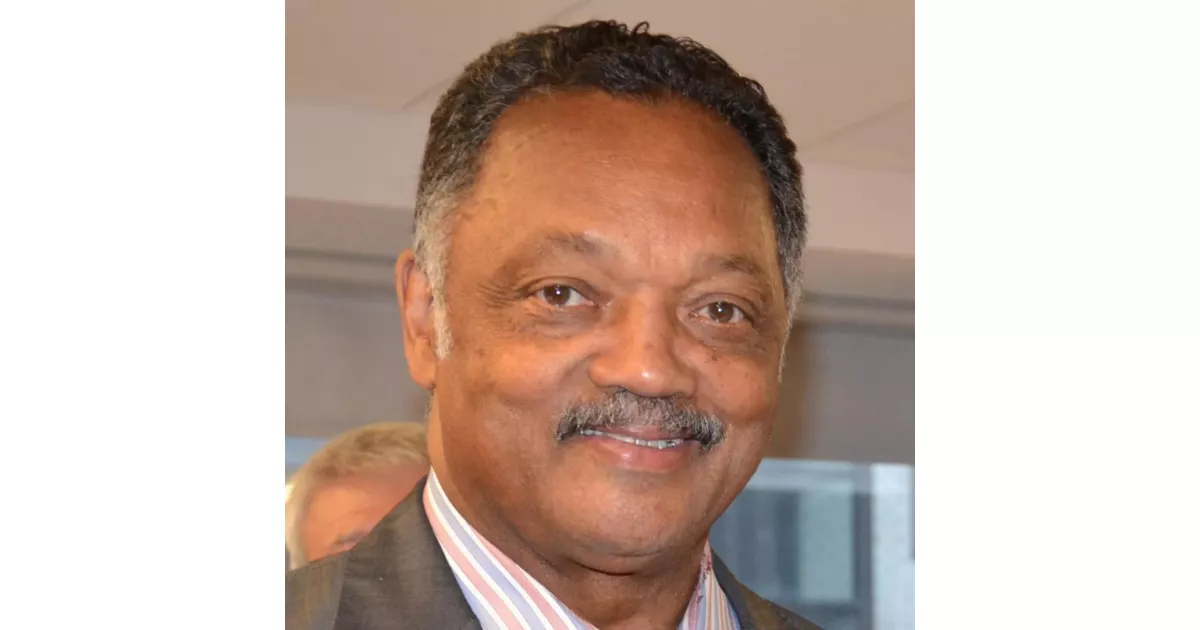A success timeline featuring the most significant achievements of Jesse Jackson.
Jesse Louis Jackson is a prominent American civil rights activist, politician, and Baptist minister. He rose to prominence as a protégé of Martin Luther King Jr. during the Civil Rights Movement and has remained a leading figure in civil rights advocacy for decades. He served as a shadow delegate and senator for the District of Columbia from 1991 to 1997. Jackson is also the father of former U.S. Representative Jesse Jackson Jr. and current U.S. Representative Jonathan Jackson.
1971: Named One of Ebony's Most Influential Black Americans
In 1971, Jesse Jackson was named to Ebony Magazine's "100 most influential black Americans" list.
1979: Jackson Receives Jefferson Award
In 1979, Jesse Jackson received the Jefferson Award for Greatest Public Service Benefiting the Disadvantaged.
1983: Travel to Syria to secure the release of a captured American pilot
In 1983, Jesse Jackson traveled to Syria and successfully negotiated with President Hafez al-Assad for the release of captured American pilot Navy Lt. Robert Goodman.
January 4, 1984: Reagan Welcomes Jackson and Goodman to White House
On January 4, 1984, after Jesse Jackson successfully negotiated the release of Navy Lt. Robert Goodman from Syria, President Reagan welcomed both Jackson and Goodman to the White House. This event increased Jackson's popularity and served as a springboard for his 1984 presidential run.
June 1984: Jackson Negotiates Release of Americans in Cuba
In June 1984, Jesse Jackson, upon invitation by Fidel Castro, negotiated the release of 22 Americans who were being held in Cuba.
1987: Jackson praised as a successful black leader
In 1987, Donald Rheem described Jesse Jackson as "one of the most successful black leaders in American history", acknowledging his 25 years of public service which included voter registration drives, inner-city economic development, and advocating for a moral message that urged black individuals to stay away from drugs and pursue fulfilling lives.
1987: Clean Transcript
In 1987, the University of Illinois' president reported that Jackson's 1960 freshman year transcript was clean and said he would have been eligible to re-enroll at any time.
1988: Meeting with Dukakis and Democratic National Convention
In 1988, Jesse Jackson met with Michael Dukakis after the Democratic primaries to discuss Jackson's platform, including universal voter registration and delegate allocation rules. Jackson sought consideration as Dukakis's running mate. Tensions arose, requiring Jimmy Carter to mediate before the 1988 Democratic National Convention. Following Dukakis's nomination, Jackson appeared with Dukakis and Lloyd Bentsen, and by September, Jackson's former campaign members disputed with the Dukakis campaign.
1988: Second Presidential Bid
In 1988, Jesse Jackson mounted a second bid for president. He finished as the runner-up to Michael Dukakis.
1988: NAACP President's Award
In 1988, Jesse Jackson was awarded the NAACP's President's Award.
1988: Jackson's Performance and Credibility in the 1988 Presidential Campaign
In 1988, Jesse Jackson's presidential campaign gained credibility, exceeding expectations and improving upon his 1984 results. Despite facing challenges, including allegations against his half-brother, Jackson's broader appeal among white voters solidified his position as a prominent candidate.
1991: Receives James Madison Award
In 1991, Jesse Jackson received the American Whig-Cliosophic Society's James Madison Award for Distinguished Public Service.
1991: Trip to Iraq to plead with Saddam Hussein for the release of foreign nationals
In 1991, on the eve of the Persian Gulf War, Jesse Jackson traveled to Iraq to plead with Saddam Hussein for the release of foreign nationals held as a "human shield", securing the release of several British and 20 American individuals.
1999: Receives Golden Doves for Peace Prize
In 1999, Jesse Jackson received the Golden Doves for Peace journalistic prize awarded by the Italian Research Institute Archive Disarmo.
August 2000: Clinton Awards Jackson the Presidential Medal of Freedom
In August 2000, Bill Clinton awarded Jesse Jackson the Presidential Medal of Freedom, the nation's highest honor bestowed on civilians.
2000: Awarded Master of Divinity Degree
In 2000, Jesse Jackson was awarded a Master of Divinity degree by Chicago Theological Seminary.
2002: Included in List of 100 Greatest African Americans
In 2002, scholar Molefi Kete Asante included Jesse Jackson on his list of 100 Greatest African Americans.
February 2006: Voted Most Important Black Leader
In February 2006, Jesse Jackson was voted "the most important black leader" in an AP-AOL "Black Voices" poll.
2008: Jackson's campaigns credited with paving the way for Obama
In 2008, Barack Obama's successful presidential campaign was attributed, in part, to Jesse Jackson's historic presidential campaigns in the 1980s, which are credited with increasing black voter turnout and exceeding expectations.
2008: Presented with Honorary Fellowship from Edge Hill University
In 2008, Jesse Jackson was presented with an Honorary Fellowship from Edge Hill University.
August 2009: Crowned Prince Côte Nana
In August 2009, Jesse Jackson was crowned Prince Côte Nana by Amon N'Douffou V, King of Krindjabo, who rules more than a million Agni tribespeople.
2015: Awarded Honorary Degree from University of Edinburgh
In 2015, Jesse Jackson was awarded an honorary degree of Doctor Honoris Causa from the University of Edinburgh, in recognition of decades of campaigning for civil rights.
December 2021: Elected Honorary Fellow of Homerton College, Cambridge
In December 2021, Jesse Jackson was elected an Honorary Fellow of Homerton College, Cambridge.
2021: Appointed Commander of the Legion of Honor
In 2021, Jesse Jackson was appointed Commander of the Legion of Honor, France's highest order of merit, presented by French president Emmanuel Macron, for his work in civil rights.
2022: Receives Honorary Doctorate from Benedict College
In 2022, Jesse Jackson received an Honorary Doctor of Humane Letters degree from Benedict College.
Mentioned in this timeline

Donald John Trump is an American politician media personality and...

Bernie Sanders is a prominent American politician currently serving as...
Fox News Channel FNC is a conservative American news and...

Tupac Shakur also known as Pac and Makaveli was a...

Bill Clinton the nd U S President - served as...

John F Kennedy JFK was the th U S President...
Trending

9 months ago YNW Melly Faces Death Penalty Retrial in September Amid Murder Case

10 months ago Haaland's Absence: Manchester City Prepares for Derby Amidst Injury Concerns
4 months ago Orlovsky urges more Derrick Henry carries; Gronkowski warns AFC Contender faces disaster

2 months ago Noah Kahan Responds Positively to 'Snooze Fest' Label for His Music.

6 months ago Shane Gillis' girlfriend's vacation, Epstein files comments, and ESPYS appearance announced.

3 months ago Upstart's Q3 Earnings: Mixed Results, Soft Q4 Guidance, and Stock Slides After Announcement.
Popular

Thomas Douglas Homan is an American law enforcement officer who...

Martin Luther King Jr was a pivotal leader in the...

XXXTentacion born Jahseh Dwayne Ricardo Onfroy was a controversial yet...

William Franklin Graham III commonly known as Franklin Graham is...
Matt and Ross Duffer known as the Duffer Brothers are...

Instagram is a photo and video-sharing social networking service owned...
